Train Loco Readers…How We Doing!? Today we have an awesome guest blog by our friend and Registered Dietitian, Erik Bustillo. There’s a lot of misleading information on supplementing with Vitamin D so we wanted to get the correct information for all of you so you could know if supplementing with Vitamin D is safe, effective, and worth the money. Please give your undivided attention to Erik Bustillo. Enjoy!
-Eric and Chris
What is Vitamin D?
Vitamin D is a fat soluble vitamin that is involved in many processes in the body such as helping with calcium absorption (strong bones), bone growth and remodeling (recuperation from an injury), nerve and muscle function, to name a few. Vitamin D is also a pro-hormone making it important in the production in other pro-hormones and hormones such as DHEA and Testosterone.
How to get Vitamin D?
Vitamin D is naturally produced in the body by contact with sun light. Keep in mind, if one has darker skin or utilizes sun block, the effect may be hindered in these individuals. Vitamin D may also be found in some foods such as:
– Cod liver oil
– Swordfish
– Salmon
– Canned tuna fish
– Egg yolk
– Fortified milk
Vitamin D3 supplementation is possibly the most ideal form of getting Vitamin D without getting sun exposure. When looking for a Vitamin D supplement, be sure to look for Vitamin D3 as this is the active form where D2 is not. Also, it is best if taken with a dietary fat source, i.e. Olive oil, fish oil, peanut butter, to name a few healthy fatty foods.
Why would anyone take Vitamin D?
Because it may be really good for you.
Ok, seriously, here’s why.
Below is a list of potential benefits of taking a Vitamin D supplement:
– Decreased cardiovascular disease risk—-> healthy heart, maybe better performance
– Less chance of a bone fracture—–>you athletes already know that’s good news
– Decrease body fat——>look better?
– Decreased cancer risk——>that’s always good.
– Improve cognition—–>help pass a test.
– Increase Testosterone——>help build muscle and promote recuperation.
How to know when to supplement & how much to take
Always check with a physician before taking a supplement, but make sure they know what they are talking about. Not too many physicians are up to date with nutritional supplements; it wouldn’t hurt speaking to a registered dietitian about it as well (had to plug my profession). Rule of thumb, anyone north of Florida should probably take a Vitamin D supplement. Even with that said, my practice is in sunny South Florida and I find that 95% of my patients are not within the optimal blood levels and approximately 70% are medically low.
Whenever possible, have blood work done. This will provide a base of your levels. Always keep in mind that we cannot manage what we do not measure (you can quote me on that)! The medical reference range is 30-100 ng/mL. That range is to avoid deficiency, but not necessarily what is optimal. The optimal range is 55-75 ng/mL.
Typically speaking, a safe supplementation dose is 2,000 IU (International Units), but a 10,000 IU may be the “upper safe” dose. Taking 20,000 IU daily may lead to toxicity. Vitamin D toxicity can possibly lead to death. Always consult with a health professional and measure your levels before taking a Vitamin D supplement.
The Take Away:
– Vitamin D is a fat soluble vitamin and a pro-hormone
– When supplementing, take Vitamin D3 with a fatty food (i.e. Fish oil)
– Vitamin D has several potential health and performance benefits
– In blood work, medical range is 30-100 ng/mL; optimal range is 55-75ng/mL
– Avoid taking more than 10,000 IU on a daily basis
– Consult with a health professional and perform a blood test before supplementing
BIO:
Erik Bustillo is a Registered Dietitian, Certified Sports Nutritionist through the International Society of Sports Nutrition- ISSN, and a Certified Personal Trainer through the National Strength and Conditioning Association – NSCA. Erik has experience in clinical research studies and extensive knowledge in medical nutrition therapy. He is actively involved with top organizations in the fields of Exercise Science and Sports Nutrition, making him well equipped with both knowledge and practice of cutting edge research in these areas. His specialty being sports nutrition and supplementation, this makes him a diverse health professional that excels in performance science.
Erik can be reached at [email protected] &
@erikbustillo – twitter, facebook, & instagram
References:
http://examine.com/supplements/Vitamin+D/
Salehpour, A., Hosseinpanah, F., Shidfar, F., Vafa, M., Razaghi, M., Dehghani, S., et al. (2012). A 12-week double-blind randomized clinical trial of vitamin D3 supplementation on body fat mass in healthy overweight and obese women. Nutrtion Journal, 11(78).
Dobnig H, Pilz S, Scharnagl H, Renner W, Seelhorst U, Wellnitz B, Kinkeldei J, Boehm BO, Weihrauch G, Maerz W. Independent association of low serum 25-hydroxyvitamin d and 1,25-dihydroxyvitamin d levels with all-cause and cardiovascular mortality. Arch Intern Med.2008;168:1340–1349.
Bischoff-Ferrari HA, Dawson-Hughes B, Staehelin HB, et al. Fall prevention with supplemental and active forms of vitamin D: a meta-analysis of randomized controlled trials. BMJ. 2009;339:b3692.
Holick MF 2004 Vitamin D: importance in the prevention of cancers, type 1 diabetes, heart disease, and osteoporosis. American Journal of Clinical Nutrition;79(3):362-371. Siddiqui SM 2008 Dietary intervention with vitamin D, calcium, and whey protein reduced fat mass and increased lean mass in rats. Nutritional Research ;28(11):783-790
Pilz S, Frisch S, Koertke H, Kuhn J, Dreier J, Obermayer-Pietsch B, Wehr E, Zittermann A. Effect of vitamin D supplementation on testosterone levels in men. Horm Metab Res. 2011;43(3):223–5.
Annweiler C., Allali G., Allain P., Bridenbaugh S., Schott A. M., Kressig R. W., et al. (2009). Vitamin D and cognitive performance in adults: a systematic review. Eur. J. Neurol. 16, 1083–1089.10.1111
CHECK US OUT ON:
FACEBOOK:
TWITTER:
YOUTUBE:
INSTAGRAM:



